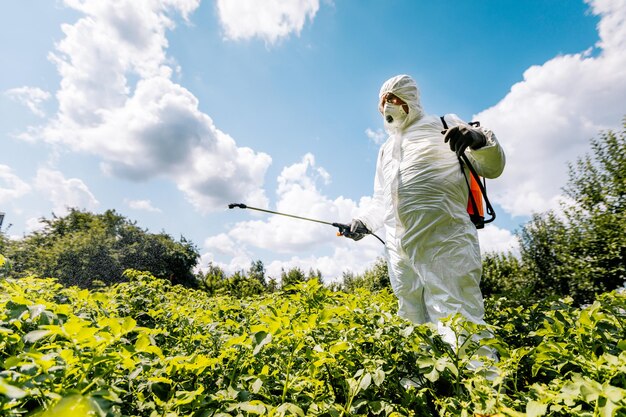Pest control is a critical component of farming, ensuring healthy crops and robust yields. However, many South African farmers inadvertently make mistakes that hinder the effectiveness of pest control efforts, leading to losses and environmental harm. Here’s a detailed look at the common pitfalls and how to avoid them.
1. Ignoring Pest Identification
Many farmers fail to correctly identify the pests affecting their crops. Misidentification can lead to the use of ineffective control methods, wasting resources and exacerbating pest problems.
Solution:
Learn to identify pests accurately or consult an agricultural extension officer. Use resources like agricultural pest guides or apps tailored to South African farming conditions.
2. Overreliance on Chemical Pesticides
Some farmers overuse chemical pesticides, believing they are the most effective solution. This approach can lead to pest resistance, harm beneficial insects, and contaminate soil and water.
Solution:
Adopt integrated pest management (IPM) practices that combine biological, cultural, and chemical methods for sustainable control.
3. Using the Wrong Pesticide
Applying pesticides that are not designed for the specific pest or crop is a common mistake. This misstep wastes money and time, leaving the pest problem unsolved.
Solution:
Read labels carefully and ensure the pesticide is registered for your crop and pest. Seek advice from agricultural supply stores or experts.
4. Applying Incorrect Dosages
Over- or under-dosing pesticides can be equally detrimental. Overdosing harms the environment and increases costs, while underdosing allows pests to survive and build resistance.
Solution:
Follow manufacturer guidelines strictly and use calibrated equipment to ensure the correct application rate.
5. Poor Timing of Pesticide Application
Timing is crucial in pest control. Spraying at the wrong time, such as during heavy rains or when pests are not active, reduces effectiveness.
Solution:
Apply pesticides when pests are most vulnerable, typically early morning or late afternoon. Monitor weather forecasts to avoid spraying before rain.
6. Ignoring Beneficial Insects
Beneficial insects like ladybugs and lacewings help control pests naturally. Using broad-spectrum pesticides indiscriminately can kill these allies.
Solution:
Opt for selective pesticides or non-chemical methods to protect beneficial insects. Implement habitat-friendly practices, such as planting cover crops.
7. Failure to Rotate Pest Control Methods
Using the same pest control method repeatedly can lead to resistance. Pests adapt quickly, making the control method ineffective over time.
Solution:
Rotate pesticides with different modes of action and combine them with cultural and biological methods for a holistic approach.
8. Inadequate Crop Monitoring
Many farmers only address pest problems once they become severe. Reactive pest control is often more expensive and less effective than proactive measures.
Solution:
Regularly scout fields for early signs of pest infestations and take immediate action to prevent outbreaks.
9. Neglecting Soil Health
Poor soil health creates conditions that attract pests and weaken plants. Farmers often overlook this connection when addressing pest issues.
Solution:
Maintain soil fertility through crop rotation, organic amendments, and proper irrigation practices to grow stronger, pest-resistant crops.
10. Improper Storage and Disposal of Pesticides
Improper storage or disposal of pesticides can lead to environmental contamination, health risks, and reduced effectiveness.
Solution:
Store pesticides in their original containers in a cool, dry, and secure location. Dispose of empty containers and unused pesticides according to local regulations.
Effective pest control requires a strategic approach that combines knowledge, planning, and sustainable practices. By avoiding these common mistakes, South African farmers can protect their crops, enhance yields, and contribute to a healthier environment. For tailored advice, engage with agricultural experts or local extension services. Sustainable pest control is not just good for your farm—it’s essential for the future of agriculture.
Join 'Farmers Mag' WhatsApp Channel
Get the latest Farming news and tips delivered straight to your WhatsApp
CLICK HERE TO JOIN






